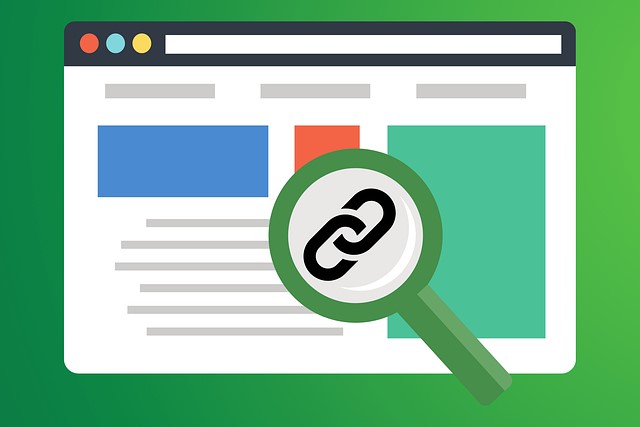The Importance of Backlinks in SEO
Getting your blog or website to rank is tough and getting tougher every day. Link building is one of many SEO tactics you can use, but you need quality links over the quantity of links and it's getting harder every single day.
Links from other sites have long been a Google Ranking Factor. Think of them as votes that allow Google and other search engines to measure whether or not your content is valuable and useful.
Inbound links not only help your search engine rankings, but they offer opportunities for people to discover you and your content.
Backlinks also pass authority to your site. The more authority sites linking to your site have, the better the link value...
Backlinks Definition
A backlink is an incoming hyperlink from one page of a website to a page on another website.
If someone links to a page or post on your website, then you have a backlink from them. If you link to another website, then they have a backlink from you.
Why backlinks are important?
First, they are a signal to Google that your content may be useful and respected. Think of backlinks as votes for your content.
Second, links are how Google discovers web sites and individual pages. (That's why cross-linking to content on your own site is helpful.)
Third, links from other sites to your site may help introduce your brand to visitors of sites with similar interests.
When creating content, it's important to ask yourself, "Who will amplify this?" Who might link to it and why?
Backlinks Have Less Impact Today
Backlinks have been an important part of Google's algorithm, and that led to grayhat and blackhat techniques that tried to game the system with reciprocal linking, buying links and comment spam, among others.
Google has devalued inbound links, especially low-quality links, as a result.
Better signals to Google are E-A-T (Expertise, Authority and Trust) and now E-E-A-T (Experience-Expertise, Authority and Trust) Read more about that here.
What makes a good backlink?
Links from respected domains influence search rankings much more than sites with low E-E-A-T. For example, a link from Consumer Reports will be much more valuable than a link from a site like BobsApplianceReviews.com. Read more about that in my article about E-E-A-T.
Domain Authority (DA) is also a ranking factor. It's a 'score' developed by Moz that predicts how likely it is that a website will rank on search engine results pages. The higher the score, the more likely it as that content will rank high on the site. It's rare for a site to have a DA of 100. Dropbox, Scribd and Reddit all score 90+.
In general, a grade of 60-100 is excellent, and 40-50 is acceptable. Anything less than 40 is not enviable.

How to check backlinks on any website.
You may want to see who is linking to your website, and you might like to0 see who is linking to your competitor's.
One link building strategy is to ask for links to your content from sources that are linking to your competitor's.
There are both free, or freemium, and paid tools that can help. I wrote an article about keyword and link tracking tools that will give you essential insights.
How to Rank Your Site on Google
If you want to understand how to rank your new or existing site on Google, you'll need to know about Search Engine Optimization, online marketing, getting backlinks and content creation. I wrote about SEO here, and how long it takes to rank on Google, among others.
You may also want to read "15 SEO Mistakes That Hurt Rankings." Click here.
Step 1: Start with keyword research. Use less competitive versions of a keyword. Instead of "credit cards" consider trying "best credit cards" or "low-interest credit cards."
Step 2: Optimize pages for your target keywords. Don't use the same keyword over and over. In fact each post should be optimized for a different focus keyword. Try using the 'SEO Title Tag plugin.'
Step 3: Ensure high speed and performance. It's a critical ranking factor. So is being mobile-friendly. Google indexes the mobile version of your site as the default.
Step 4: Help Google find and index your website. Use a sitemap. Set up Search Console. Use what you learn in Search Console. It's one of the few ways to get feedback from 'The G.'
Step 5: Boost your rankings with backlinks. Part of the secret to this is creating content that people want to link to.
Today, I thought I would share the results of a survey of 800 people on the subject of link building, which is a long-time SEO strategy.
The Current State of Backlinks for SEO
Here’s a quick summary:
58.1% believe that backlinks have a big impact on search engine rankings
56.3% believe that link quality and quantity impact rankings
54.58% think that nofollow links improve authority and/or rankings
84.39% think that link building has a big impact on brand authority
59% say backlinks will have more of an impact on rankings in the next few years
38.4% spend $1,000 to $5,000 a month on link building
40.7% say content marketing provides the strongest passive link building results
37.3% use organic traffic to measure the quality of a link
How much of an impact do you think backlinks have on search engine rankings?
Big impact: 58.10%
Moderate impact: 37.34%
Low impact: 4.05%
Other: 0.51%
More than half of the participants (58.10%) indicated that backlinks have a big impact on search engine rankings, while 37.34% said that links only have a moderate impact.
Just 4.05% said that links have a low impact on rankings.
Takeaway
Over half of the professionals surveyed see a strong correlation between backlinks and search engine rankings.
Unless you’re targeting an extremely obscure keyword in a non-competitive niche, trying to rank without any links is next to impossible.
Sites that rank number one have 3.8x more backlinks than sites that rank in positions 2 to 10.

How to Get More Backlinks
- Content marketing: 13.1%
- Guest posting: 11.2%
- Forum links: 10.2%
- Link insertions: 10.4%
- Link exchanges: 10.4%
- Directory link building: 9.5%
- Redirecting domains: 8.5%
- Press releases: 8.6%
- Broken link building: 6.8%
- Unclaimed brand mentions: 5.6%
Bottom Line
The key takeaway from the survey is that a majority of SEO professionals still believe that backlinks have a big impact on rankings and brand authority.
The Google Penguin algorithm was designed to penalize sites that were trying to game the system with spammy links. You can’t just blast your site with low-quality links and expect to rank number one overnight or maintain those rankings long-term.
Kurt Scholle has been building and marketing successful websites for over 25 years in a wide range of markets, including manufacturing, hospitality, optometry, non-profits, authors and public speakers.
Follow him on Twitter or LinkedIn.
Join the Website Success Club on Facebook.
Can he help your organization? Schedule a Call to find out!


